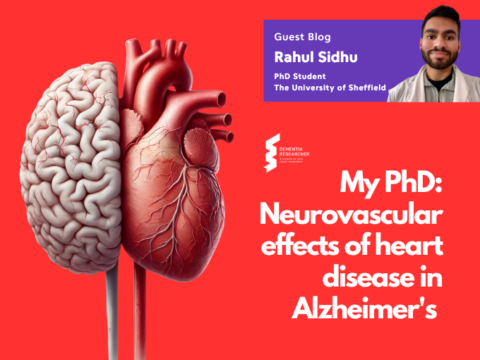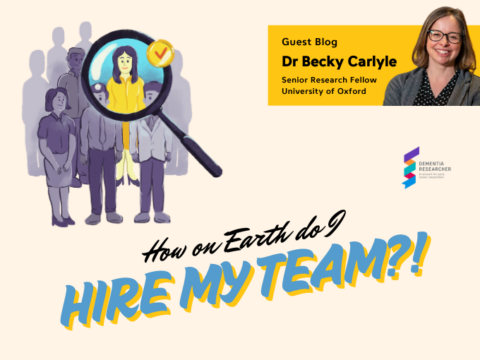Hello everyone, it’s me, back again to try and change the academic environment, one blog post at a time. If you’ve read any of my previous posts, you might know that a lot of the things I write about in academia broadly are from what some may consider a pessimistic viewpoint, and often focus on how to navigate challenges of the academic landscape. They also often focus on how to navigate things on a personal level, but something I haven’t spoken about much (if at all) is how to help others navigate their own challenges as a friend or colleague, and how to respond in a manner that is helpful and appropriate.
A recent article in Time which was circulated on our blogger chat got me to thinking about how I aim to go about doing these things, and equally, witness many people in the scientific community making a bit of a mess out of it.
For many of you, what I am going to say will be obvious. But how many of us have thought “I don’t know the right thing to say” when people we know experience something challenging? I’d bet it would be most, if not all of us. Heck, when I would vent about my PhD-related issues during my studies, more often than not I was met with someone turning round to me as they typed without looking at the keyboard, saying “oh that’s too bad” and then going back to work. And yes, I had asked them if they had time to talk, and that was their ”coffee break” in which they apparently had time. I’m not blaming them, but I am blaming the ideas of community, or lack thereof, that we perpetuate in our culture of academic overwork.
So, with no patronising tone meant, and with genuine desire to try and make the academic culture a little bit better, let us all take a deep breath and learn about how we might better respond to the trials and tribulations of our colleagues, and hopefully learn something about the impact of what we do and say beyond the scientific progress that we make.
For many of us, academia is what we live and breathe, and for the most part, that’s fine if that’s something you can maintain in a healthy way. However, the problem with living and breathing one singular thing is that when life happens external to that one thing, it will affect your academic life. For me, the death of my father during my PhD was a prime example; I was having to live and breathe my academic life, and then suddenly he died and it felt like the world stopped, academic machine be damned.
External things like this can be tricky, but where we all share in our emotions and bad news is where empathy and lab camaraderie can be more easily fostered – and to be honest, maybe you’re missing a trick if you don’t recognise this, we all know lab cohesion helps improve our research outputs. Think, paper rejections, hatred of reviewer two, grant rejection, fellowship rejection, unsuccessful job application or interview, and then think about the fact that we might be talking about repeat failures before success. Few of us have the level of resilience required for this on our own, we need our colleagues and they need us.
Before we get into this properly, I want to acknowledge that it takes practice. But something that many find very useful as a basis for responding to any such situation is the VASE (is it vase or vase, who knows?) method. It stands for validate, acknowledge, support, and express. Or, in other words, recognise their experience is real, show that you understand that they are going through a challenging situation, offer tangible help in addressing the issue where possible, and then tell them how you feel about the situation. I’ll use a real-life example from my PhD experience – yes, this is real, I wish it wasn’t.
Someone in the academic world, upon finding out I’d just come back after my dad’s death:
“Well, glad you’re back after that distracting stuff with your dad, we’ve got a lot to do, you missed a fair bit.”
Someone using the VASE structure of response:
“I’d heard, I am so sorry. Grief can be really tricky and I can’t imagine the challenge of going through that during your PhD. I hope you managed to properly log off from work and spend time with your family. There have been a few group meetings whilst you’ve been away, but don’t worry about that at all, I can loop you into those whenever you’re ready. Also, I just want you to know that I am also here for you outside of work, if ever you need or want to talk about anything.”
I use this example because the contrast is so stark, and if you imagine yourself being on the receiving end of both of these, my point becomes very clear. The first one is bad, but it isn’t incorrect – the use of “distracting” isn’t great, but everything they list is all fact – my dad was terminally ill which was a huge distraction, we did have a lot to do, and I had missed a month of my PhD with little warning beforehand. It just isn’t in any way empathetic to the emotions I was feeling. On the other hand, the second one works so well because it hits a lot of key points – a gentle mention of prior knowledge helps someone not feel like they have to explain something difficult yet again, validation puts us on the same page and is particularly useful here when getting away from work is mentioned (particularly when there’s a culture of overwork in your workplace). They mention concerns that might have also worried you – what you’ve missed – but immediately provide solutions for these, and further to that they offer a listening ear. These things are also all facts, and much the same as the real example, they just also happen to be empathetic.
Of course, I recognise this is easier for some people than others, but the crux of this is listening to the individual, hearing what they are saying, and taking time to have a more considered response, which includes ways in which you can lighten the load (where possible). The words themselves take practice and aren’t always perfect, but context can go a long way here – don’t be that person who just turns round at their desk, one eye on their work. Allocate proper time for a fruitful conversation, or discuss when you can do so.
We race so hard and so fast to these numerical metrics of success, that we sometimes forget the people we work around, and the hurdles they may have had to pass in order to contribute to the work environment on any given day. Being mindful of how we converse around these topics can make all the difference in the world.

Jodi Watt
Author
Dr Jodi Watt is a Postdoctoral Researcher at University of Glasgow. Jodi’s academic interests are in both healthy ageing and neurodegenerative diseases of older age, and they are currently working on drug repurposing for dementia. Previously they worked on understanding structural, metabolic and physiological brain changes with age, as measured using magnetic resonance imaging. As a queer and neurodiverse person, Jodi is also incredibly interested in improving diversity and inclusion practices both within and outside of the academic context.

 Print This Post
Print This Post







I’m so sorry you had to experience that, Jodi. I was very, very fortunate with the support I received from my colleagues when both my dad and mum passed away during my PhD studies. However, there was one colleague who said, when we met for the first time after my second bereavement, “oh goodness me, such a loss for you. I’m OK, I’ve still got both of mine.” Such a thoughtless comment that left me speechless.